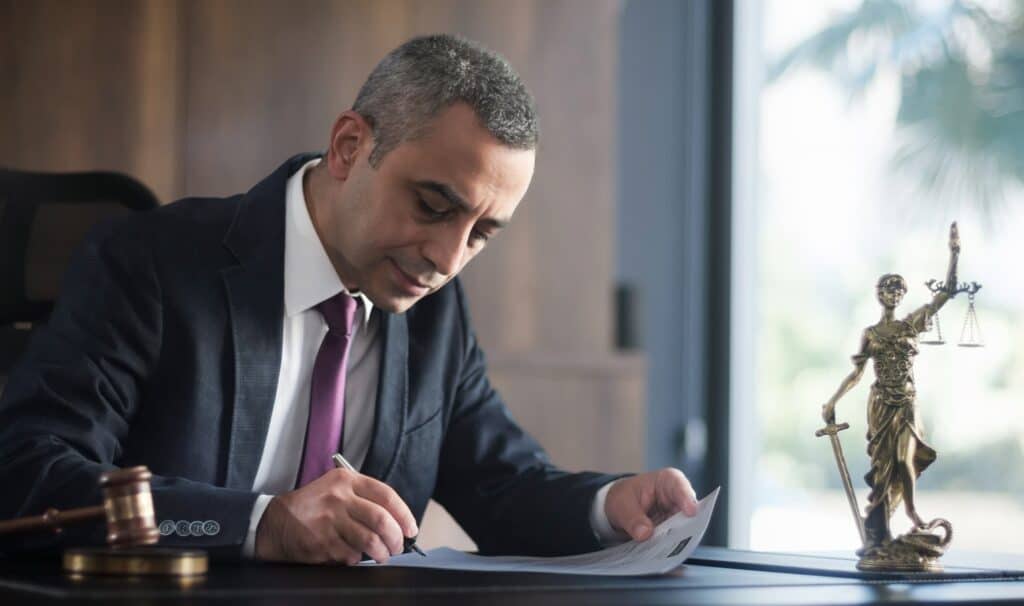Witnessing a Will in the UK: Who can Witness a Will?
Who needs to witness a Will?
There are two main ways for a Will to be signed:
- in front of the lawyer in their office
- by the testator at home (a ‘testator' is the person who is making the Will for themselves)
It is usually preferrable that the Will is completed under the supervision of the professional who drafted it to ensure the strict legal requirements for a valid Will are met. However, this may not always be possible for example in cases of ill-health or emergency.
Importance of witnessing a Will in the UK
It is important to ensure that a Will is witnessed properly as this helps to protect the testator’s wishes and could help if any doubts about validity arise.
If you find yourself executing your Will without expert supervision, there are some important steps to remember:
- the testator must sign the Will in the presence of two adult witnesses
- the testator and both witnesses must be present together when the Will is signed and completed
- the witnesses cannot be a beneficiary or potential beneficiary under the Will nor a spouse or civil partner of a beneficiary or potential beneficiary
- as well as their signature, the witnesses should include their full printed name, full address and occupation
- the Will must be dated once completed
the Will should be handled carefully and not be marked in any way or have anything attached or fixed to it. This includes staples or paperclips, otherwise it could risk the validity of the Will.
Who can witness a Will in the UK?
The witness must be 18 and over years of age with capacity and not related to the testator or have any personal interest in the Will. This could be a family friend of neighbour.
Who can not witness a Will in the UK?
Beneficiaries of the Will cannot witness a Will. Also the testator’s spouse or civil partner cannot witness a Will. You also can’t witness a Will if you are blind or partially sighted because the witness needs to physically see the signature completed on the paper.
Requirements for witnesses
A witness must be 18 and over years of age and not related to the testator and have no personal interest in the Will.
Wills and Power of Attorney Enquiry
Fill out the form and a member of our team will get in touch to discuss how we can help.
Witnessing a Will Requirements in the UK
Overview of the requirements for witnessing a Will in the UK
Witnessing a Will is a legal obligation; for a Will to be valid it must be signed by the testator and their signature must be made or acknowledged in the presence of two witnesses. The witness must be present at the same time and must also sign the Will.
Signing a Will as a witness
As a witness you would need to include your full printed name, full address and occupation.

Can a beneficiary witness a Will?
No, a beneficiary cannot witness a Will. If a beneficiary, or their spouse or civil
partner witnesses a Will, they forfeit their right to their share of the estate.
Although you are not required to allow your witness the opportunity to read or examine the Will, the reality is that it can be difficult to avoid as the signature part immediately follows the main body of the Will and where there are multiple pages, they will be bound as one document. You should therefore aim to use witnesses who you can trust to be discrete.
Can a solicitor witness a Will?
A solicitor can witness a Will, and they can also offer a second witness, often a colleague or staff member.
Can an executor be a witness to a Will?
An executor of a Will can witness a Will, as long as they aren’t a beneficiary (or the spouse or civil partner of a beneficiary).

Problems with Witnessing a Will
Overview of the problems with witnessing a Will
It is important to have two independent witnesses, who do not gain from your Will. A Will can be rendered invalid on the grounds if the correct legal procedure has not been followed.
Invalidating the Will
A Will can be challenged on several different grounds including a failure to follow the formalities needed to make a Will. You can read more about this here.
Other than limited minor corrections, any changes or errors on Wills will usually need to be addressed by preparing a new document. This could be by either using a codicil (a supporting document to the original Will which acts as an update) or a new Will (which will replace the old Will).


Mullis & Peake have specialists in Wills ready to help you. Contact us online today or call us on 01708 784000.
Alternatively, request a call back to have one of our team contact you at a time that suits.






















